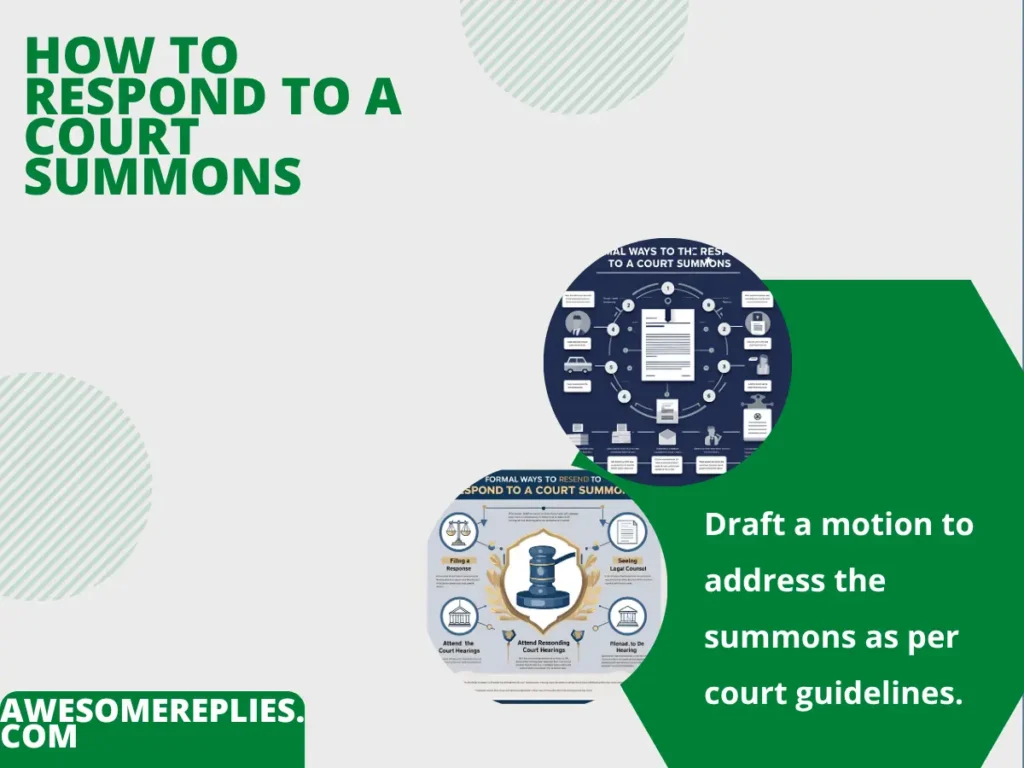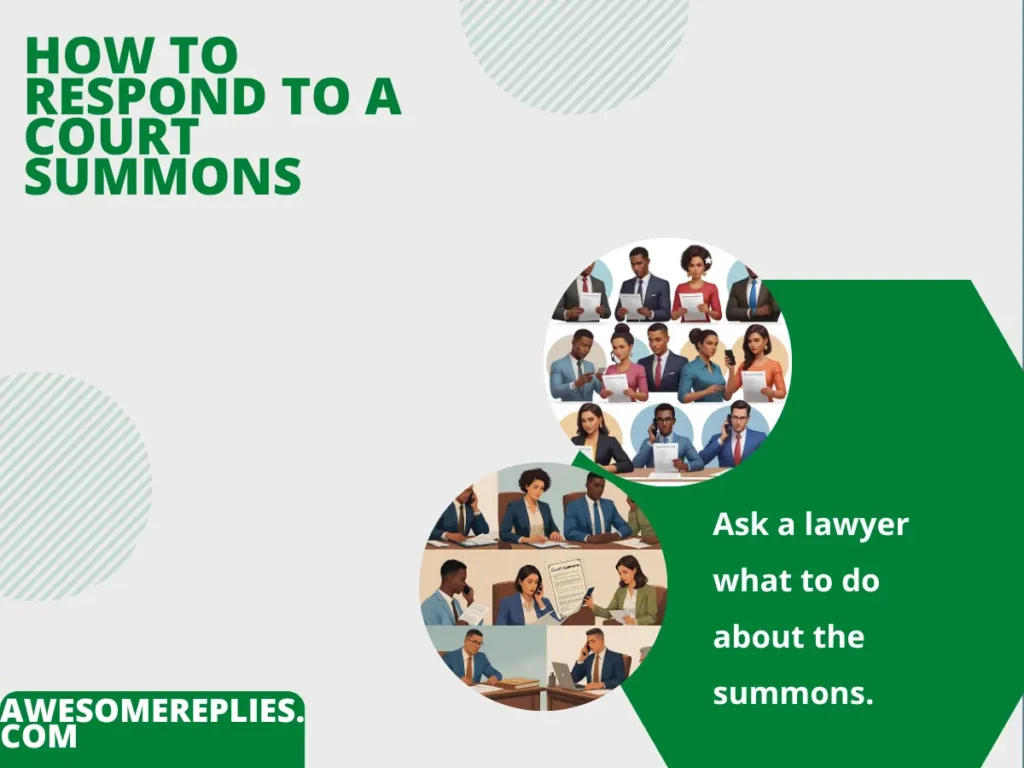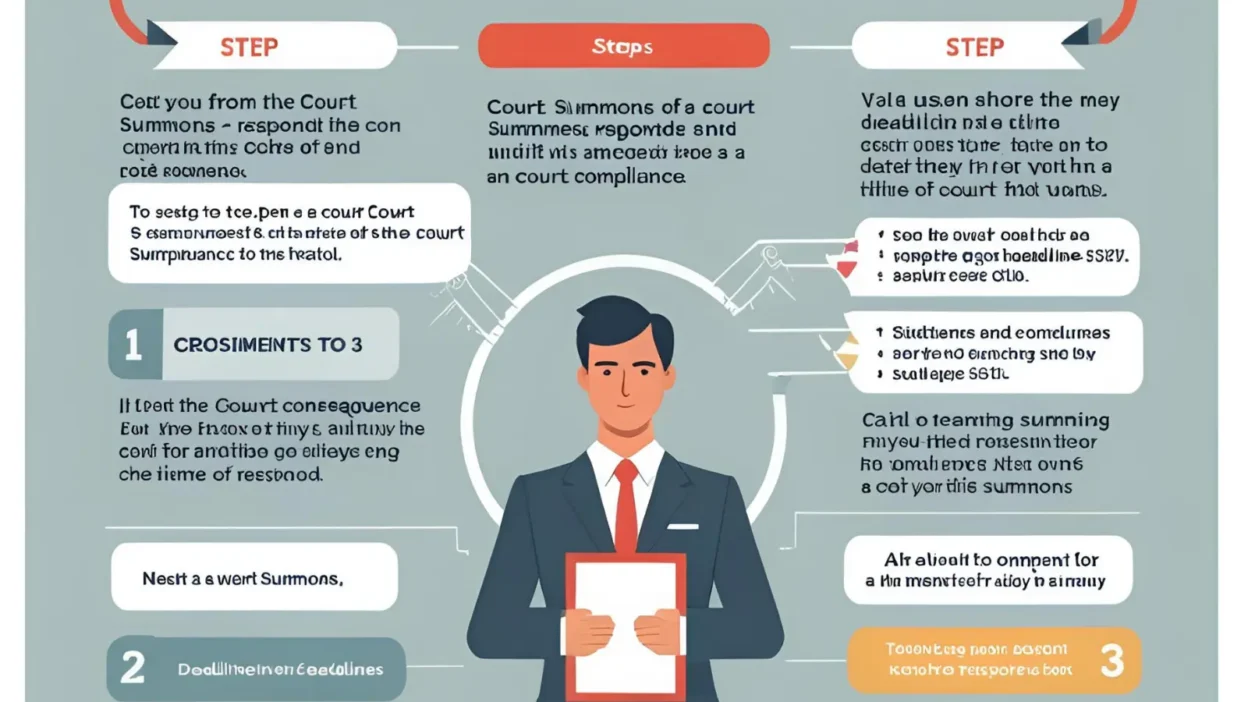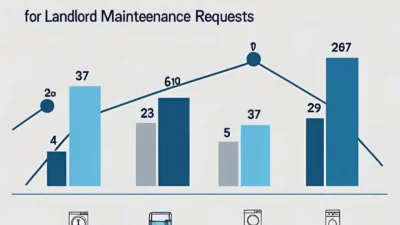Searching for the perfect way to handle a court summons but unsure where to start? Look no further!
This article solves your problem with clear, actionable steps and a variety of ways to approach a court summons.
Whether you’re facing a legal notice for the first time or need guidance on formal, informal, idiomatic, or professional responses, we’ve got you covered.
Different situations call for unique approaches to responding to a court summons, and this guide provides tailored options to fit every context.
Read on to discover how to respond confidently and appropriately.
Formal Ways to Respond to a Court Summons

When a court summons arrives, a formal response is often required to meet legal standards. Below are over 30 formal ways to express your response to a court summons, ensuring clarity and respect for the legal process.
- Acknowledge receipt of the summons and confirm intent to comply with court requirements.
- Submit a written response to the court within the stipulated timeframe.
- File an answer to the summons with the court clerk promptly.
- Confirm attendance at the scheduled court hearing in writing.
- Request legal counsel to prepare a formal response to the summons.
- Draft a motion to address the summons as per court guidelines.
- Notify the court of your intent to appear through a formal letter.
- Respond to the summons by filing a counterclaim if applicable.
- Seek an extension for responding to the summons through a formal request.
- Address the court with a written acknowledgment of the legal notice.
- Engage an attorney to draft a response to the summons.
- File a motion to dismiss if the summons contains errors.
- Submit a formal plea in response to the summons allegations.
- Request clarification from the court regarding the summons details.
- Provide a written statement addressing the claims in the summons.
- Confirm compliance with the summons by submitting required documents.
- Respond to the court with a formal notice of appearance.
- File a response to the summons with supporting evidence.
- Request a hearing date adjustment through a formal motion.
- Acknowledge the summons and seek mediation if appropriate.
- Submit a formal objection to any inaccuracies in the summons.
- Notify the court of representation by legal counsel.
- Respond to the summons with a detailed legal defense.
- File a written response adhering to court procedural rules.
- Request a continuance if more time is needed to respond.
- Address the summons with a formal denial of claims.
- Submit a response to the court with a request for discovery.
- Confirm receipt of the summons and intent to defend.
- File a formal answer addressing each point in the summons.
- Request legal assistance to ensure a proper summons response.
- Submit a written acknowledgment to the issuing court authority.
- Respond to the summons with a formal statement of facts.
- File a motion for summary judgment if applicable.
- Notify the court of your response timeline in writing.
- Address the summons with a formal request for clarification.
Informal Ways to Respond to a Court Summons

In less formal settings, such as discussions with friends or family about a court summons, you might use casual language. Here are over 30 informal ways to talk about responding to a court summons in everyday conversations.
- Tell the court you’re showing up for the hearing.
- Drop off your answer at the courthouse soon.
- Get a lawyer to handle the summons for you.
- Write back to the court about the notice.
- Show up to court and deal with it.
- Ask a lawyer what to do about the summons.
- Send the court a letter saying you’ll be there.
- File something quick to answer the summons.
- Talk to the court about pushing the date back.
- Let the court know you’re on top of it.
- Get your response to the courthouse ASAP.
- Ask for more time to deal with the summons.
- Tell the court you got their notice.
- Write a quick note back to the court.
- Find a lawyer to sort out the summons.
- Let the court know you’ll fight the claims.
- Send in your side of the story to court.
- Ask the court what’s up with the summons.
- Tell the court you’re hiring a lawyer.
- Get your paperwork in to answer the summons.
- Ask to move the court date if needed.
- Tell the court you don’t agree with the summons.
- Send a letter to the court with your response.
- Get legal help to figure out the summons.
- Let the court know you’re handling it.
- Write back to the court with your defense.
- Ask for a break to respond to the summons.
- Tell the court you’re not ignoring them.
- Send your answer to the court quick.
- Get advice on how to handle the summons.
- Tell the court you’ll show up ready.
- Write a note to the court about your plan.
- Ask the court for more details on the summons.
- Let the court know you’re working on it.
Idiomatic Ways to Respond to a Court Summons
Idiomatic expressions add color to conversations about responding to a court summons, often used in casual or creative contexts. Here are over 30 idiomatic ways to describe handling a court summons.
- Face the music and answer the court’s call.
- Step up to the plate for the summons.
- Get your ducks in a row for court.
- Take the bull by the horns with the summons.
- Answer the court’s knock at the door.
- Roll up your sleeves and tackle the summons.
- Put your cards on the table in court.
- Get the ball rolling with your response.
- Bite the bullet and file your answer.
- Jump through the hoops for the summons.
- Lay it all out for the court.
- Get in the game with your court response.
- Take the plunge and answer the summons.
- Put your best foot forward in court.
- Clear the air with your court filing.
- Get your act together for the summons.
- Throw your hat in the ring for court.
- Step into the ring with your response.
- Get down to brass tacks with the court.
- Rise to the occasion for the summons.
- Lay your cards down for the hearing.
- Get on the ball with your court answer.
- Take it on the chin and respond.
- Play ball with the court’s summons.
- Get your house in order for court.
- Face the piper with your response.
- Pull up your socks for the summons.
- Get in the saddle for the court case.
- Stand your ground with the summons.
- Hit the ground running with your answer.
- Go to bat for yourself in court.
- Tackle the summons head-on.
- Show up and show out for court.
- Get the show on the road with your filing.
- Take the reins and handle the summons.
Professional Ways to Respond to a Court Summons
In workplace or professional settings, such as emails or meetings, you need polished phrases to discuss a court summons. Here are over 30 professional ways to express how to respond to a court summons.
- Acknowledge the summons and prepare a formal response.
- Submit a written answer to the court promptly.
- Engage legal counsel to address the summons.
- File a response in accordance with court procedures.
- Confirm receipt of the summons with the court.
- Request an extension to respond if necessary.
- Notify the court of your intent to appear.
- Prepare a detailed response to the summons claims.
- Address the court with a formal acknowledgment.
- File a motion to dismiss any invalid claims.
- Submit a written statement to the court clerk.
- Request clarification on the summons details.
- Respond to the court with supporting documentation.
- Confirm representation by legal counsel in writing.
- File a formal answer addressing each allegation.
- Request a hearing date adjustment if needed.
- Submit a response adhering to legal protocols.
- Notify the court of your defense strategy.
- Address the summons with a formal letter.
- File a counterclaim if appropriate to the case.
- Request mediation through a formal court motion.
- Acknowledge the summons and outline your response.
- Submit a plea addressing the summons content.
- Notify the court of compliance with requirements.
- File a response with evidence to support your case.
- Request discovery to prepare for the summons.
- Address the court with a professional defense.
- Confirm your appearance at the scheduled hearing.
- Submit a formal objection to summons errors.
- Engage an attorney to ensure proper response.
- Notify the court of your response timeline.
- File a motion for summary judgment if applicable.
- Respond to the court with a clear statement of facts.
- Acknowledge the summons with a professional letter.
- Submit a response meeting all court deadlines.
Conclusion
Responding to a court summons can feel daunting, but choosing the right approach makes all the difference.
Whether you need a formal response for legal proceedings, a casual way to discuss it with friends, an idiomatic expression to add flair, or a professional phrase for workplace conversations, this guide offers versatile options.
Using the right phrase ensures clarity, respect, and confidence in your response.
Practice these approaches to handle a court summons effectively, and always consult legal professionals when needed to navigate the process smoothly.




